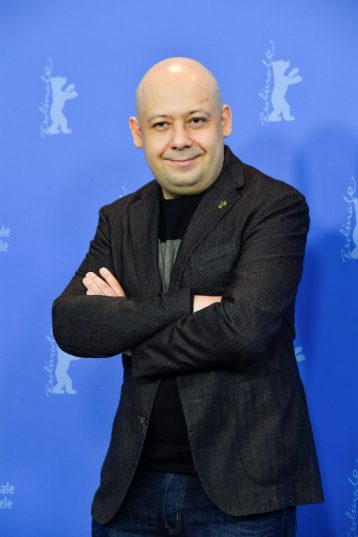24 hours in pictures, 28 January 2025
The Berlinale, Europe’s first major cinema showcase of the year, will hand out its coveted Golden and Silver Bear top prizes at a gala ceremony starting at 1800 GMT.
A six-member jury headed by German director Tom Tykwer (“Run Lola Run”, Netflix series “Babylon Berlin”) will choose among 19 contenders from around the world.
Anderson’s “Isle of Dogs” opened the festival on February 15, delighting audiences with an all-star cast voicing a pack of pooches expelled from a fictional Japanese city by a corrupt, fear-mongering mayor.
Britain’s Guardian called the movie “hugely enjoyable”, showing an “indefatigably fertile imagination letting rip in inimitable style – and packing an eco-themed, antibigotry message as well”.
The picture led an international critics’ poll at the Berlinale published by industry magazine Screen.
Reviewers were also impressed with the gut-wrenching drama “U-July 22” about the mass murder of 69 mainly teenage victims on the Norwegian island of Utoya by far-right militant Anders Behring Breivik.
The film, featuring in a chilling single 72-minute take, recounts the carnage in real time with fictionalised characters.
It premiered just days after one of the worst school shootings in US history, killing 17 in Florida.
The movie sparked a heated debate among viewers, victims’ families and survivors about whether it was too soon — or even necessary at all — to reenact Norway’s most traumatic tragedy since World War II on screen.
However, US website Indiewire said the “almost unbearably harrowing recreation” in Erik Poppe’s movie honoured the victims while rallying societies to do more to protect their young.
“Movies have the power to re-sensitise us to violence, restoring some terrible shape to the mass horrors we’ve negligently allowed to become abstractions,” it said.
– ‘Blind faith in authority’ –
Acclaimed Filipino director Lav Diaz, who scooped the top prize in Venice two years ago with “The Woman Who Left”, won admirers for his new picture, “Season of the Devil”.

Russian film director Alexey German Jr’s film “Dovlatov” focuses on a Russian-Jewish writer grappling with Soviet-era state censorship.
The four-hour-long folk musical, filmed in black and white, depicts the suffering unleashed on rural communities by a sadistic government-backed militia under Ferdinand Marcos in the late 1970s.
Film industry bible Variety said the opus also served as a searing critique of the current regime by exposing its origins.
“In its firm, direct rhetorical stand against martial law… (the film) damns the current leadership of President Rodrigo Duterte, under whose rule extrajudicial killings have soared in the country,” it said.
Another subtly topical movie also resonated strongly, a biopic about Russian-Jewish writer Sergei Dovlatov grappling with Soviet-era state censorship.
“This is not only a look back,” said the daily Berliner Zeitung about Alexey German Jr.’s “Dovlatov”.
“The societal deformation and the blind faith in authority seen here also have much to say about today’s Russia.”
– #MeToo cast shadow –
Audiences swooned over a rare Paraguayan film export, “The Heiresses” by Marcelo Martinessi, about a middle-aged lesbian couple forced to sell their belongings to pay off mounting debts.
“The relative scarcity of female-centric queer cinema from South America should guarantee continuing interest from festival programmers,” the Hollywood Reporter wrote.
At a ceremony late Friday, the Teddy prize for best feature film with gay or lesbian context went to Brazilian “Hard Paint” by Marcio Reolon and Filipe Matzembacher about a young man making his living in sex chat rooms.
Germany’s “Transit” with a mysterious tale of refugees in Nazi-occupied Europe transposed to the present day, and “Museum” from Mexico starring Gael Garcia Bernal about a daring heist of priceless relics, also earned praise.

The final day of the competition brought one last critical hit with “In the Aisles”, starring Sandra Hueller of “Toni Erdmann” fame and Franz Rogowski as a couple of lost souls in east Germany set adrift after reunification.
The #MeToo movement also cast a long shadow over the Berlinale, with several topical films screened and a raft of industry initiatives launched to combat sexual exploitation.
Last year, a tender Hungarian love story set in a slaughterhouse, “On Body and Soul”, captured the Golden Bear. It is now nominated for best foreign language film at next month’s Academy Awards.
Download our app and read this and other great stories on the move. Available for Android and iOS.